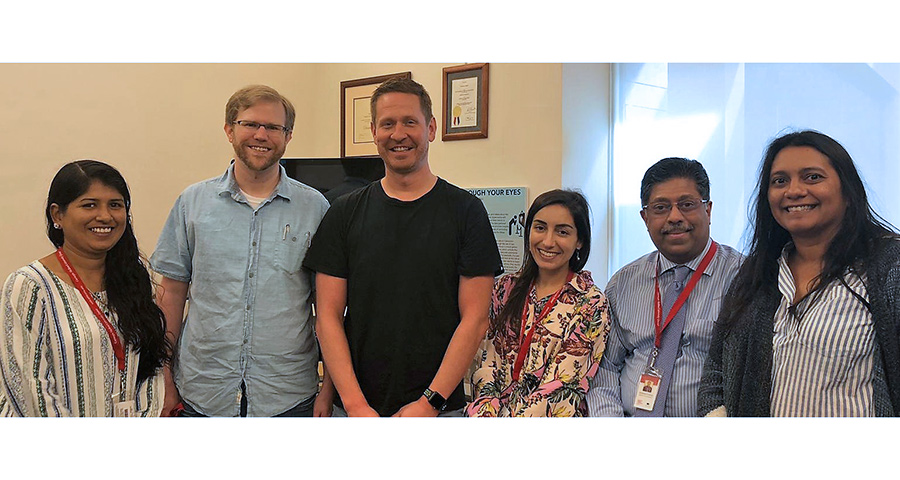
Research builds collaboration between disciplines to improve student writing
A research team at Carnegie Mellon University in Qatar is bringing together different disciplines to improve students’ academic writing in the field of information systems. The collaboration is proving to be an effective way to teach students to use language to meet assignment and genre expectations within their specialized field of study.
The research project, which is funded by a National Priorities Research Project (NPRP) grant by the Qatar National Research Fund, brings together English language and linguistics educators with their colleagues in information systems. The project is titled SLATE-Q, an acronym for Scaffolding Literacy in Academic and Tertiary Environments.
“The English teachers know the language, and we work with faculty members in information systems who know the content,” said Silvia Pessoa, the lead principal investigator of SLATE-Q and an associate teaching professor of English at CMU-Q.
The project grew out of a previous NPRP grant where Pessoa, as the lead principal investigator, followed the CMU-Q Class of 2013 throughout the four years of their undergraduate education. For this project, the team analyzed how students develop academic literacy skills like writing analytical and persuasive arguments. As the project progressed, the team worked closely with faculty members to craft assignments and set clear expectations.
The goal of the SLATE-Q project is to build a framework that educators can use to better guide students through their writing assignments. The team collaborates with information systems professors to build an understanding of the expectations in each specific assignment. They then help to develop clear rubrics to assess student writing, and design materials that will act as “scaffolding” to teach the students the elements of strong academic writing as they progress through the assignment. Workshops, individual feedback and other materials help to guide the student. The team analyzes the writing at different stages, helping to guide the students and assess the efficacy of the scaffolding materials.
Tom Mitchell, associate teaching professor of English, explains how effective writers use language to guide a reader to their position: “We tell them, for instance, when they begin to write, they are entering into a dialogue with their reader. When they cite a source, they are opening the dialogue to outside voices. When they articulate how that citation is relevant to their argument, they are narrowing the dialogue and bringing the reader closer to their position.”
The SLATE-Q team stresses that the project is an iterative process that is adapting as the team gathers information. Pia Gomez Laich, assistant teaching professor of English, notes: “We help to explain the assignment expectations to the students, and then they draft and re-draft on their own and we see where they need the most help and where they improve. This provides us with considerable data to see where students need the most support.”
As the project continues, the team is collaborating with professors from different fields of study, adapting the process to different disciplinary frameworks.
Along with Silvia Pessoa, the lead principal investigator, the SLATE-Q team includes several principal investigators from CMU-Q: Selma Limam Mansar, senior associate dean for education; Divakaran Liginlal, teaching professor of information systems; Thomas Mitchell, associate teaching professor of English; and Susan Hagan, associate teaching professor of information systems. The team also includes principal investigators Ahmar Mahboob from University of Sydney and Ryan Miller from Kent State University.
